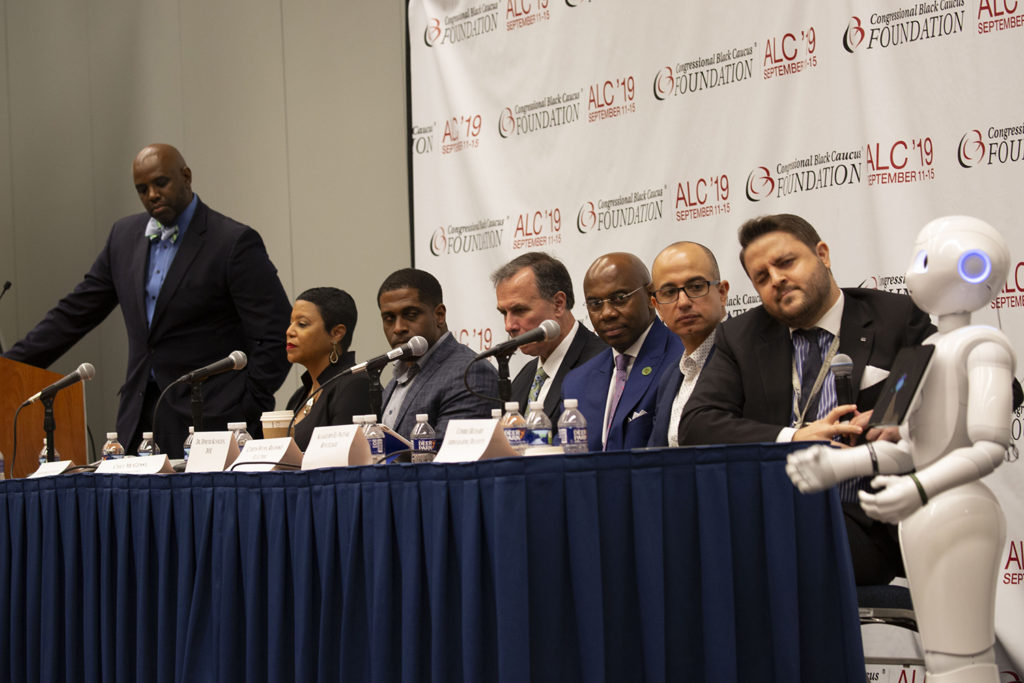
When electric cooperative leaders talk about artificial intelligence, the public may envision robots running power plants.
But, as NRECA President Curtis Wynn recently explained during an energy issues forum hosted by the Congressional Black Caucus Foundation, it’s actually about using electronic data to help co-ops discover how to better serve their consumer-members.
“It’s basically just allowing us to utilize the information we collect to help us make better decisions,” Wynn said. “It’s not as complicated as the name would imply.”
For example, Roanoke Electric Cooperative in Ahoskie, North Carolina, where Wynn is president and CEO, plans to work with North Carolina’s Electric Cooperatives to use geo-targeting to help find out which of its members have been looking at electric vehicles online.
Then, the co-op can send information about EVs to members that it knows are interested in the subject, Wynn said in an interview after the energy forum. The co-op will soon be offering a special subscription rate for EV users.
Data from the co-op’s new Automated Metering Infrastructure (AMI) allows Roanoke EC to create an integrated system of smart meters that communicate back and forth between the co-op and its members. The meters allow the co-op to locate and respond to power outages more quickly. They also provide data that the co-op can use to improve its energy efficiency programs, which can help members save money on their monthly bills, Wynn said.
“Data from our AMI system helps us let members know when their electric consumption is about to exceed a certain amount,” he said. “We can tell them that kilowatt usage has exceeded their average and that they might need to check for a leak in the water heater or something like that.”
Members who have consistently high bills, as revealed by the data, could benefit from a free energy efficiency audit and investment from the co-op to install insulation and other cost-saving improvements, Wynn said.
The co-op also can use data from the National Weather Service to figure out when to raise and lower the temperature on members’ smart thermostats to reduce peak demand, he said.
Virtual-reality technology also could help co-ops nationwide train new workers, Wynn told the audience during a panel discussion on AI, blockchain technology and innovation at the CBC Foundation’s Annual Legislative Meeting in Washington, D.C., on Sept. 13.
“We’re facing a huge exodus of talent,” he said. “Within the next five years, a large percentage of our line technicians will retire. We could use virtual reality to transfer the knowledge of experienced workers to less experienced technicians who are learning how to do their jobs.”
To take full advantage of the technology, rural communities must get broadband service, Wynn said.
“Little of this works if we don’t have the communications infrastructure in place to get the data,” he said.
Erin Kelly is a staff writer at NRECA.